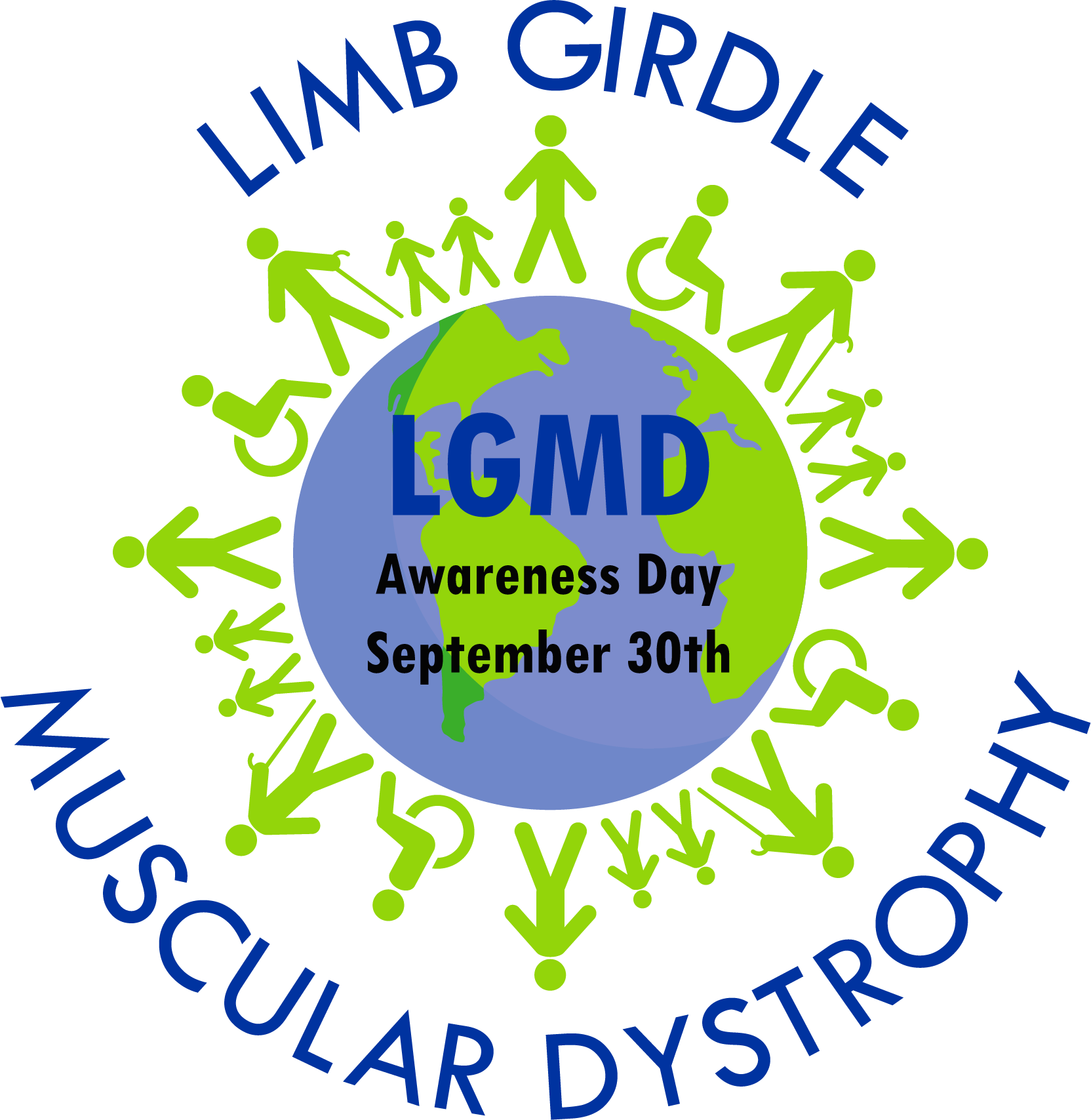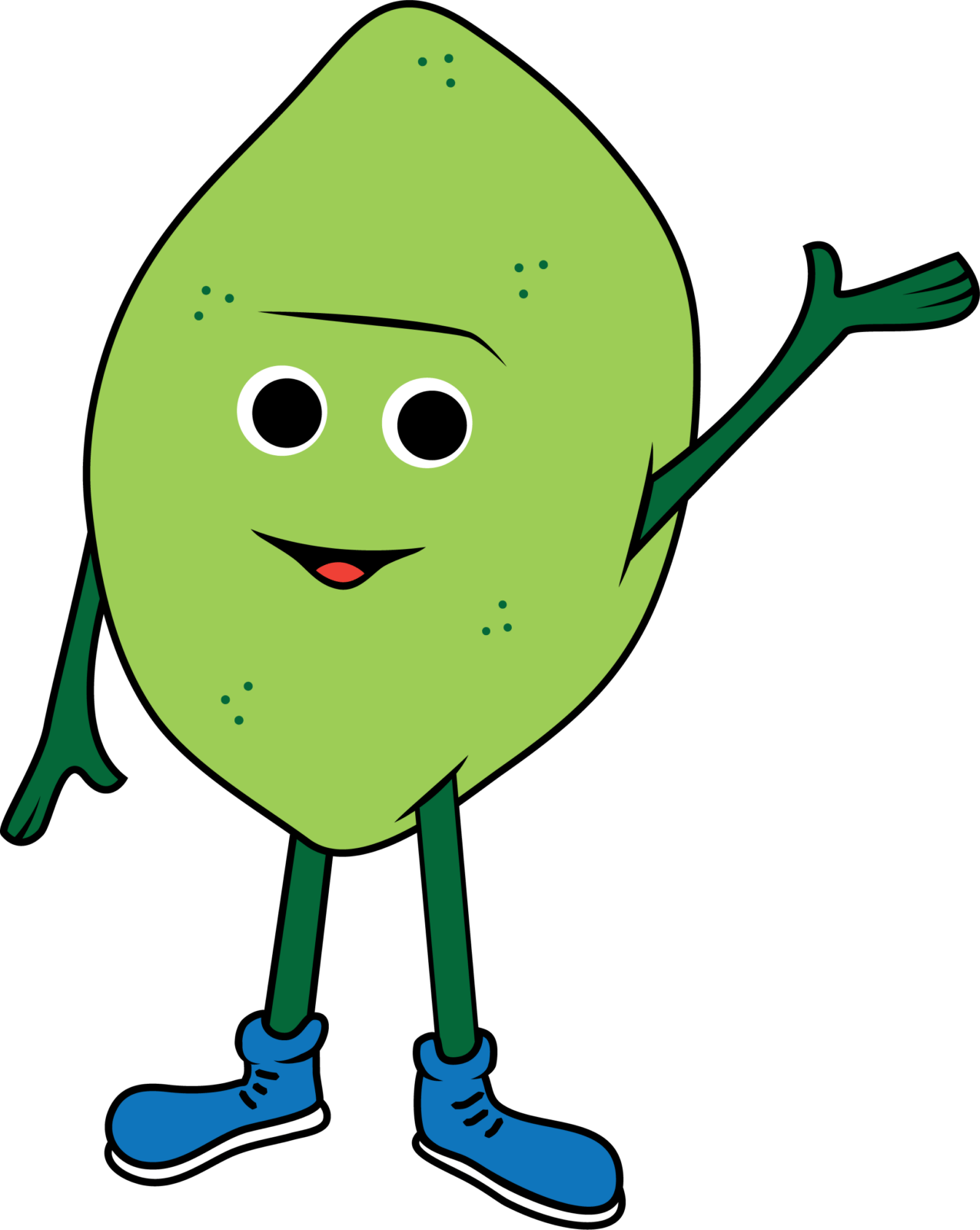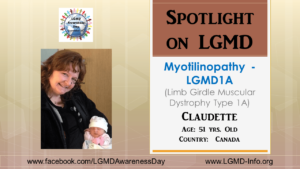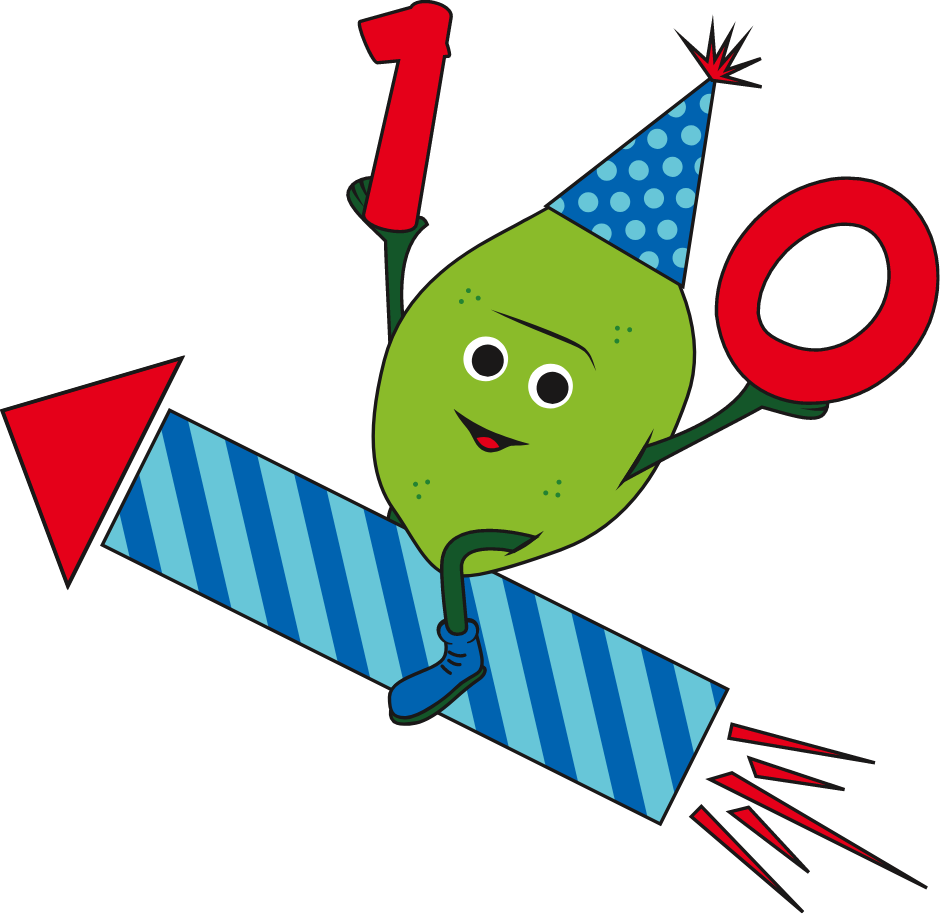INDIVIDUAL WITH LGMD: Claudette
05/7/2015
Name: Claudette
Age: 51 yrs. old
Country: Canada
LGMD Sub-Type: LGMD1A / Myotilinopathy
AT WHAT AGE WERE YOU DIAGNOSED:
I was diagnosed at the age of 39.
WHAT WERE YOUR FIRST SYMPTOMS:
My first symptoms included: difficulty with stairs, shoulder pain, shuffling or dragging my feet
DO YOU HAVE OTHER FAMILY MEMBERS WHO HAVE LGMD:
Yes, my father, my brother and my sister also have LGMD.
WHAT DO YOU FIND TO BE THE GREATEST CHALLENGES IN LIVING WITH LGMD:
The challenges I face are minimal due to tremendous support from my family. I am hard pressed to find any one main challenge for me. I think my main difficulty though is watching my husband trying to do it all! There are so many household chores I used to do and can’t anymore, laundry, cleaning, meal prep, outside chores like cleaning vehicles or mowing the lawn! We used to be a great team but of course now he has taken over these tasks. He is my primary caregiver. He also holds a full-time and very demanding job. I am so grateful for his amazing love and support!
I know this is a very common issue for many people, not only for those of us living with LGMD. I think my disease is often harder for my family than it is for me.
WHAT IS YOUR GREATEST ACCOMPLISHMENT:
My marriage, soon to be 29 years, and raising two fine boys to become strong, independent and hard working adults. Our eldest and his wife just became parents, so now I am proud to say I’m a grandmother to a beautiful baby girl!
HOW HAS LGMD INFLUENCED YOU INTO BECOMING THE PERSON YOU ARE TODAY:
My father was in a wheelchair for most of my childhood. We lived in a rural area where LGMD was rare and unfamiliar to medical people in the 1970’s. As a result, his condition was defined as a “rare neurological disorder”. He died in 1985. In the early 90’s his muscle biopsy from the 1970’s was matched to my brother’s, confirming LGMD. Throughout his illness, my father demonstrated a very off-beat sense of humor and a positive attitude. His influence has made me a rather positive person. My dad and my brother have inspired in me the courage to tackle anything LGMD will hand me. I live by the words “it could always be worse!”
WHAT DO YOU WANT THE WORLD TO KNOW ABOUT LGMD:
Sometimes we don’t fit into a box. A hundred people could be diagnosed with LGMD at the same time, and most likely all of us will progress at different rates.
IF YOUR LGMD COULD BE “CURED” TOMORROW, WHAT WOULD BE THE FIRST THING THAT YOU WOULD WANT TO DO:
If I were to be cured tomorrow, I would do something spontaneous. Something I wouldn’t have to plan or anticipate due to barriers, my own or otherwise.








